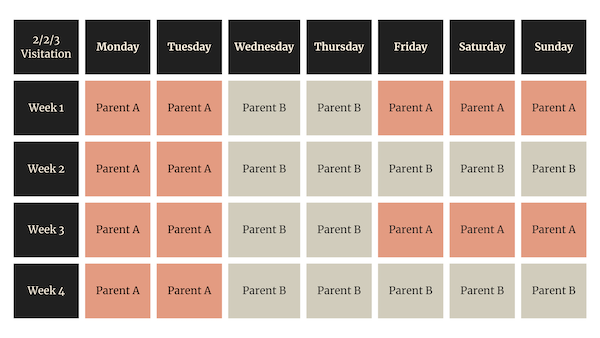Understanding Georgia’s New Child Support Guidelines
The state of Georgia, where I practice, has recently made significant updates to its child support guidelines, which take effect in 2024 and 2026. These changes will influence how child support is calculated and awarded, and may also lead to revisions of existing child support arrangements. Whether you’re currently navigating a divorce or have an existing child support order in place, these changes could play a pivotal role in your financial planning.
Things that you will want to know about the new Georgia child support guidelines include:

Key Changes
In 2024, Georgia’s legislature amended the state’s existing statutory guidelines that are used to calculate child support. Georgia follows an income-sharing model. This means that you combine the income of both parents and that tells you what the child support should be for the household. These guidelines have been updated to reflect current economic realities and address gaps in the previous system. Here are the most notable changes:
- Increased Income Threshold for Calculations
Generally speaking, the amendment increased the amount of child support to account for the cost of living. Previously, child support calculations capped at a combined household income of $360,000 annually, so $30,000 a month was the cutoff. Families earning above this threshold relied on judicial discretion to determine additional child support, but there was little uniformity across the orders.
The new guidelines raise this threshold to $480,000 annually. While courts still retain discretion for high-income deviations, the updated model calculates a higher range of support and provides more standardized calculations for families with higher incomes. - Monetary Value for Parenting Time
One of the most impactful changes set to take effect in July 2026 involves how parenting time is factored into child support calculations. There will be an automatic adjustment to the amount of child support depending on the amount of parenting time that each parent has.
The original design of child support arrangements did not factor in parenting time. Child support guidelines were based on a standard arrangement of parenting time, like a parent who only has the kids on the weekend. If that parent spends more time with the children, then, in theory, they should pay less because the parent with primary custody has the kids less of the time.
Under the new guidelines, there will now be a dollar value assigned to the amount of time that each parent has the children. This change is designed to reflect the financial value related to the time contributed by parenting, and will likely benefit parents with equal custody, which is currently the trend. This is fairly complex, so ask an experienced lawyer if you have questions.
These changes are specific to Georgia, but they reflect broader trends in family law across the United States.
Implications for Parents
The amendments bring both opportunities and challenges, depending on your role in the child support arrangement. While the changes will only be forward-looking and will not apply to past payments, it is likely to affect parents in multiple ways:
- For Paying Parents:
If you currently have a substantial amount of parenting time, the new guidelines could reduce your child support obligations. I suspect that there’s going to be a flood of new cases. Just by passage of the new guidelines, you may be able to ask for a reduction in your monthly payments going forward because the previous order didn’t have a dollar amount assigned to the number of days that you have the kids per month.’ - For Receiving Parents:
On the other hand, parents receiving child support should be aware of potential decreases in payments, particularly if the other parent has substantial custody time. Planning ahead for these potential financial adjustments is crucial. - For Both Parents:
The increased income threshold provides more clarity and consistency for high-income families, but it also underscores the importance of accurate income reporting and detailed financial documentation. If you already finalized your divorce and feel that child support was undervalued, you may want to ask for a modification.
The National Perspective
These changes are specific to Georgia, but they reflect broader trends in family law across the United States. Many states look to one another when revising their child support guidelines, often adopting successful models. For Georgia, this shift may bring it closer in line with other states that already account for parenting time in child support calculations, and it may also serve as a model to influence other state’s decisions on the topic.
Final Word
Georgia’s amended child support guidelines represent a significant shift in how financial obligations are calculated and enforced. These updates aim to create a fairer system by standardizing calculations at higher income levels and recognizing the financial contributions of shared parenting. They may also lead to a surge in child support modification requests as parents seek to adjust their obligations, and could have a profound impact on families across the state.























































